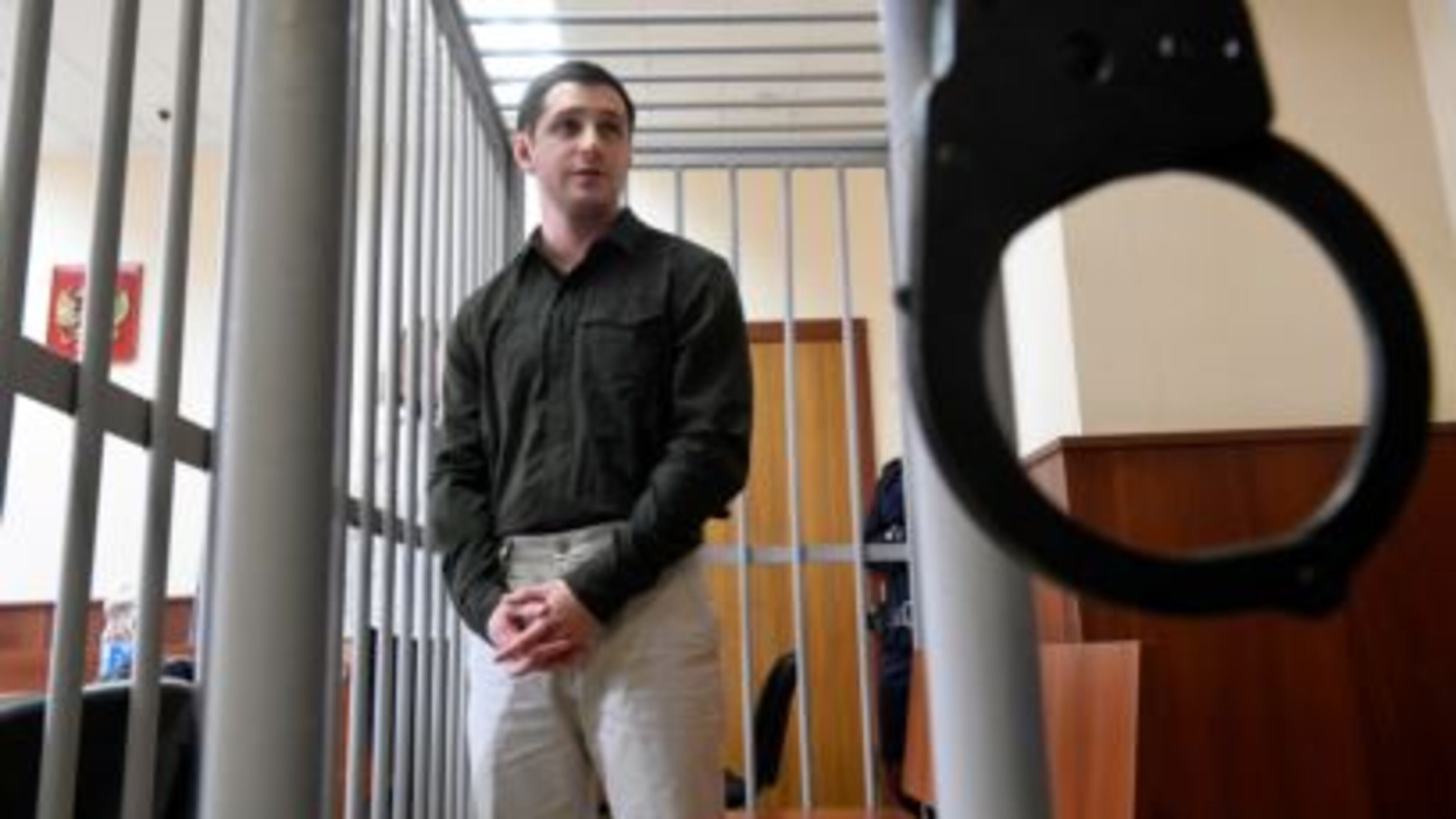Another former U.S. Marine receives long prison term in Russia

A 29-year-old former U.S. Marine from Texas, charged last year after getting into a minor scrap with two Russian police officers, was sentenced Thursday to nine years in prison.
Trevor Reed nearly received the full 10-year maximum punishment in the case that John Sullivan, the U.S. ambassador to Russia, characterizes as “preposterous.”
Reed, who has been in Russian custody just short of a year, will not get credit for time served.
His case comes to a close more than a month after American Paul Whelan, also a former Marine, was ordered to serve 16 years in a high-security Russian prison for espionage.
»RELATED: Trial begins for former U.S. Marine accused of spying inside Russia
Reed, like Whelan, maintained his innocence throughout the ordeal and did so again Wednesday, when he was allowed to speak during closing arguments.
“I think it would be unethical and immoral to plead guilty to a crime I didn’t commit,” he said in his closing statement on the eve of the trial’s verdict. “If I am going to be given a prison sentence, I’d rather stay in prison than walk free tomorrow a liar and a coward.”
Ambassador Sullivan described the case as the latest example of American citizens being used as pawns in President Vladimir Putin’s pursuit of increased political leverage on the world stage.
“The evidence was so flimsy and preposterous that everyone in the courtroom, even the judge, laughed when it was presented,” Sullivan said in a telephone interview with NBC News shortly after the verdict was issued. “If this case had been brought in a U.S. court, not only would it have been thrown out but the prosecutors would be investigated for bringing it forward in the first place.”
During the conversation, Sullivan warned that Americans considering visiting or doing business in Russia should never expect to be treated fairly by the country’s judicial system should trouble arise.
“This is not a good story for U.S.-Russia relations,” Sullivan told NBC. “And it is not good for encouraging U.S. private citizens and business to visit and invest here if what they did to [Reed] can be done to anyone.”
The United States will never allow other countries to deprive our citizens of justice. We call on #Russia to release Trevor Reed and dismiss these charges. The safety and well-being of Americans remains our highest priority.https://t.co/3UPu7F1USU
— NSC (@WHNSC) July 31, 2020
Reed was in Moscow last August, studying Russian and visiting his girlfriend.
Just days before he was set to return to the United States, he went out with his friends and co-workers to celebrate.
On the way home, Reed’s girlfriend said he became ill and their driver pulled over and called police for medical assistance. When officers arrived, they put Reed in the back seat of their squad car to take him to the station for help.
It was during the ride that deputies accused Reed, then 28, of getting into an elbow match with them, claiming he grabbed an officer’s arm and tore a hole in his jacket, which caused the vehicle to swerve.
Reed’s colleague and girlfriend, meanwhile, followed the squad car close behind, but said they noticed nothing unusual.
The alleged altercation caused only minor injuries, the officers reported after Reed’s arrest.
And despite what seemed a trivial crime, Reed was charged with endangering the lives of the officers, a crime punishable in Russia by up to 10 years in prison.
Reed’s girlfriend said he was subsequently interrogated by members of Russia’s Federal Security Service, or FSB, the country’s most powerful security body, according to The New York Times.
In the other Russian conviction of an American on June 15, a Moscow court sentenced 50-year-old Paul Whelan, also a former U.S. Marine, to 16 years in a high-security prison for espionage.
Whelan maintains he was framed by Russian agents when he was arrested at a Moscow hotel in December 2018. Russian police accused Whelan of spying, saying he was “caught red-handed” with a USB flash drive that contained government secrets.
The harsh sentence against Whelan further unravels a relationship that, despite President Donald Trump’s often-favorable public remarks about Putin, has been spiraling downward since a series of mutual expulsions of diplomats in 2018.
At the time, Whelan was the global security director for Michigan-based automotive components supplier BorgWarner.
When authorities burst into his hotel suite, Whelan explained that he was in Russia to attend a wedding, and that he accepted the device from an acquaintance believing it contained only vacation photos.
After Whelan’s sentence, Sullivan denounced the case outside the Russian courtroom as a “mockery of justice” symptomatic of what he described as the “low ebb” of relations between Moscow and Washington.
— Information provided by The New York Times was used to supplement this report.



